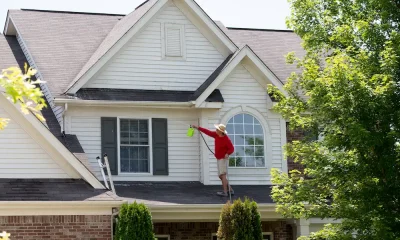Accounting & Finance
Strategies to Increase HOA Reserve Funds

A reserve fund acts as an association’s savings account. It comprises the capital that an association saves to cover major future expenses. HOA reserve funds are a cushion, and this cushion is applicable in cases of future projects or extensive repairs.
It looks pretty simple and rational. However, the question is how to increase HOA reserve funds. How do you be sure the money in a reserved fund will cover significant repairs or hurricane damage?
In this short post, we’ll talk about the HOA reserve study. We’ll cover the difference between reserve and operating funds. We’ll check the strategies to increase your HOA reserve funds.
What’s an HOA Reserve Study?
It’s either a survey or research carried out to foresee awaited expenses. This research helps to budget those expenses. Let’s give an example. You know your roof will require repair in 4 years. Or your porch will start rotting soon, and you have two more years before it’s beyond repair. It would be best if you started making plans and building reserve funds for either of the purposes.
But your plan is not a guesswork. The best practice is to conduct research with evaluations, inspections, and financial health analysis. The survey will help adapt your budget and prepare for repairs in 3 to 4 years. And that is what an association would do if they were to anticipate expenses in 3–4 years. They’d choose either internal resources or a reliable reserve study company for this.
HOAs: Reserve Funds vs Operating Funds
There are two core spending areas: daily expenses and large-scale repairs. HOAs have two different accounts for these areas: reserve funds and operating.
Reserve Funds
They are for large-scale expenses and emergencies. These funds resemble savings accounts. This means the money is used only if there is a need.
Major landscaping projects, road repairs, roof replacements, and construction are the most vivid examples. The good news is that these significant expenses can be calculated.
For instance, road repairs are scheduled every 3–5 years. But if a flood or storm damages the road, the association taps into reserves to cover urgent spending. A reserve fund is, thus, quite liquid. It’s not tied to any long-term stakes.
Ideally, a reserve fund should be 100% funded. In cases of tight money, an association must strive for 70%.
Operating Funds
They are for an association’s routine operations. They help cover expenses that occur regularly: daily, weekly, and monthly. The most vivid examples are property maintenance or housekeeping services, the HOA manager’s salary, utilities, taxes, and accounting fees.
Such funds cover different expenses that shape a huge part of financial transactions. It’s tough to enumerate them all. That’s because one’s operating expenses depend on assets, size, and community needs.
An operating fund should be funded to cover six months of operating expenses.
Top Strategies to Increase an HOA Reserve Fund
The list below is not the limit. But it covers the critical point to start with.
Conducting an HOA Reserve Study
This is the core, foundation, and cornerstone for an HOA looking to increase its reserve funds.
Any HOA-focused study is thorough and precise. It engages an association in proactive planning and calculates current and future maintenance expenses. It also provides insights into components’ lifespan. Furthermore, it aids in anticipating and planning replacements.
In 2023, companies that conducted such research reported growth in their fund balances.
Performing Regular Check-ups
Give your reserve a regular check-up. Performing a study once every 3–4 years isn’t enough. It’s important to have a specialist or agency look at both a property and a reserve account.
A specialist checks a fund’s current status annually. They consider inflation, needs, and requirements. Their clear communication will help adjust the amount of money you need to set aside.
Knowing When and How to Use It
HOA reserve funds aren’t for everyday use. Allocating the funds wisely is a must. It is a board member’s responsibility (not abusing their power) to allocate funds, acting in the interests of an association.
When deciding when or how to allocate money, one must ask two questions. 1) Is it a capital improvement? 2) Is it a repeat spending?
Making Financials Crystal Clear
Lack of explicit accounting practices leads to unfunded reserves. To prevent this, one has to ensure clear accounting and distinguish between reserved fund contributions and regular assessments.
This distinction allows them to accurately view and understand every account and where the money is allocated. Thus, the association or community is well-informed. Also, the board fulfills its duties properly.
Ensuring Proper Reports
Essential reporting is a must. It comprises the following points: balance sheet, income and cash flow statements, and general and cash disbursements reports. Sections like accounts payable and account delinquency reports are also part of it.
They give a comprehensive overview of a reserve fund. They also spotlight if the fund is well-managed.
Summing Up
When there’s no healthy reserve fund, HOAs struggle to cover emergencies. Delays, untimely repairs, and false assessments impact any association. It’s easy for a healthy HOA to manage such things. Research, investigate, and calculate how much is enough. This will help you sleep sound, enjoying the pros of a robust HOA.






